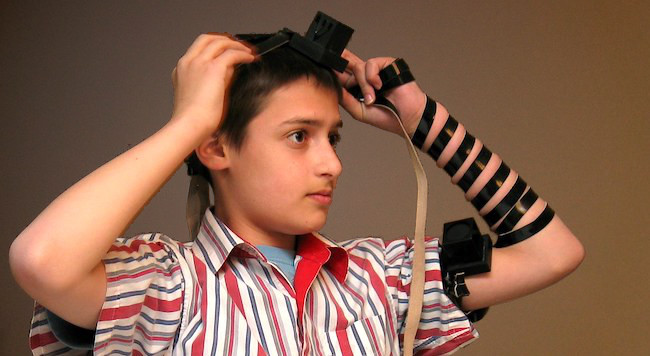
The first Mitzvah found in this week’s Torah portion is the obligation to bring the first fruits to the Temple in Jerusalem. At the end of this passage, Moshe (Moses) says “Today, G-d, your Master, has commanded you to carry out these statutes and the laws. You should guard them, and observe them, with all your heart and all your soul (Deut. 26:16).” Rabbi Shlomo Yitzchaki (Rashi) understands the choice of the word “Today” as an ongoing, daily obligation to treat the Mitzvos as if they were just given to us for the first time. Each day of serving G-d should be treated as if His orders were given “Today.”
When a boy reaches the age of 13, or a girl the age of 12, he or she becomes obligated to perform the Mitzvos, the commandments of the Torah. When a child grows up in an observant home, he or she learns how to do many of these Mitzvos, so that when the time of the Bar or Bat Mitzvah arrives there is no sudden transition. He or she is already “well practiced” in what to do.
There is an exception, however. Although Jewish men wear Tefillin, phylacteries, during morning prayer, boys do not. Depending on family custom, a boy will wear Tefillin for the first time on the day of his Bar Mitzvah, or perhaps a month earlier. This is because one must maintain spiritual focus while wearing Tefillin, which a child cannot do. And so, as you might imagine, the day a boy puts on his Tefilin for the first time is an exciting occasion, almost a holiday for him and his family.
Occasionally I have the opportunity to see a young boy put on his Tefilin for the first time. I always take note of the care they exhibit, as they slowly wrap the shiny new straps, one Tefilin box on their arm and one on their head. Their excitement and awe is palpable, as well as contagious.
Since Tefilin is a Mitzvah observed daily (with the exception of Shabbos and most Jewish holidays) it becomes a matter of routine. But this, says our parsha, is not the way it — or any Mitzvah — should be observed. What greater honor could there be than to serve the Creator of the Universe Himself? That is something we should feel every day. The Bar Mitzvah boy’s careful winding of those shiny new straps helps me imagine I too am putting on Tefilin that morning for the first time, and capture that feeling of enthusiasm and awe. That is the way, Rashi tells us, to approach all the Mitzvos of the Torah.


